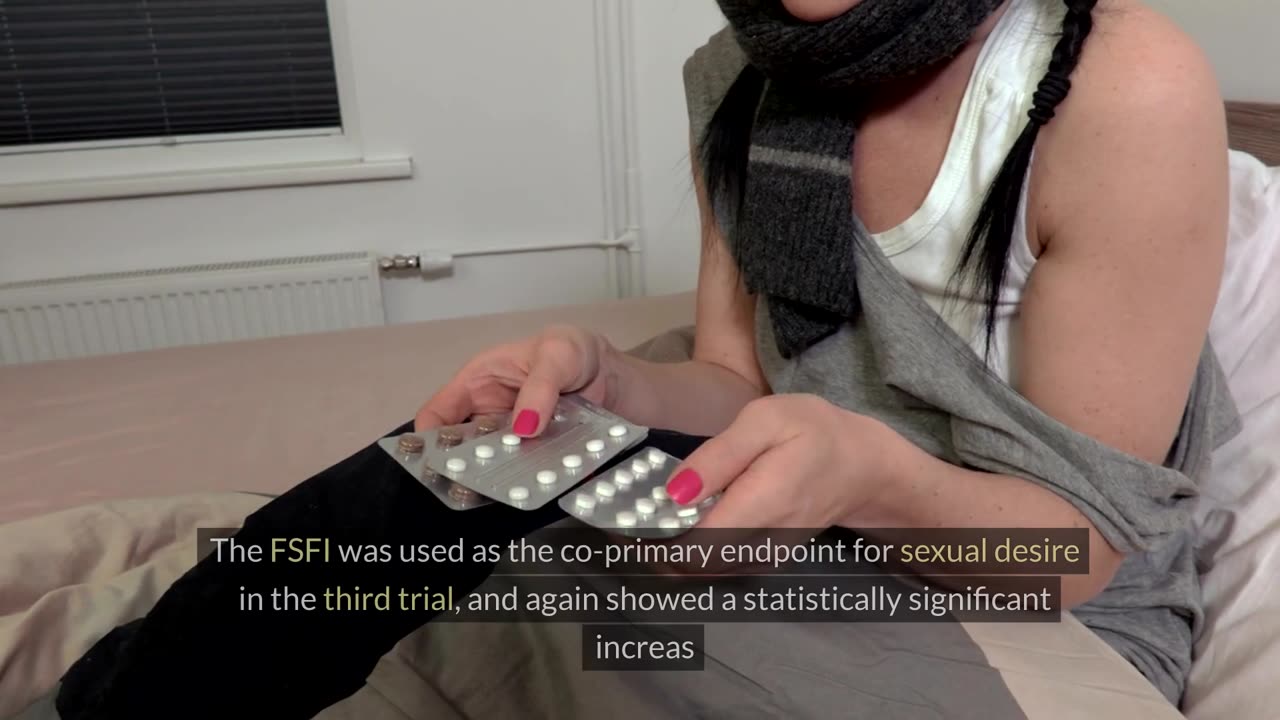Premium Only Content

Flibanserin (Addyi): A Comprehensive Guide
Flibanserin, sold under the brand name Addyi, is a medication approved for the treatment of pre-menopausal women with hypoactive sexual desire disorder (HSDD). It improves sexual desire, increases the number of satisfying sexual events, and decreases distress associated with low sexual desire. The most common side effects include dizziness, sleepiness, nausea, difficulty sleeping, and dry mouth. Development by Boehringer Ingelheim was halted in 2010, but Sprout Pharmaceuticals later achieved FDA approval in 2015. Addyi is approved for medical use in the US and Canada for women with HSDD.
Flibanserin acts as a full agonist in the frontal cortex and the raphe dorsalis, but only as a partial agonist in the CA3 region of the hippocampus. It also has low affinity for certain receptors, behaving as an antagonist or partial agonist. The mechanism of action involves modulation of serotonin and dopamine activity, improving the balance between neurotransmitter systems in the regulation of sexual response.
The journey of Addyi's approval involved multiple phases, including rejections, re-filings, and new data submissions. The FDA finally approved Addyi in 2015 for premenopausal women with low sexual desire causing personal distress or relationship difficulties. Advocacy groups played a significant role in campaigning for Addyi's approval, highlighting the need for a treatment for female sexual dysfunction.
The reception of Addyi in the market has been slow, with few prescriptions being written initially. Questions about efficacy, cost, and the need for the drug have contributed to the slow uptake. Overall, Addyi's journey from development to approval showcases the complexities of bringing a drug for female sexual dysfunction to market.
-
 2:16:48
2:16:48
Tundra Tactical
9 hours ago $0.11 earned🎯💥 The World’s Okayest Gun Show 🔫😂 | LIVE Tonight on Rumble!
27.2K -
 3:36:03
3:36:03
Mally_Mouse
1 day ago🌶️ 🥵Spicy BITE Saturday!! 🥵🌶️- Let's Play: Tower Unite!
53.6K2 -
 58:59
58:59
MattMorseTV
9 hours ago $1.49 earned🔴Trump just BROKE Newsom.🔴
68.3K85 -
 18:14
18:14
Her Patriot Voice
9 hours agoWho Is WORSE for NYC: Trump Girl or Socialist?
51.1K34 -
 3:39:42
3:39:42
SavageJayGatsby
9 hours agoSpicy Saturday with Mally! | Road to 100 | $300 Weekly Goal for Spicy Bites!
49.2K1 -
 3:35:50
3:35:50
FomoTV
11 hours ago🚨 Swamp Theater: FBI Raids Bolton 🕵 Still NO Epstein Files, Trump's Troops & the Red Heifer Hoax 🐂 | Fomocast 08.23.25
22.4K7 -
 6:04:40
6:04:40
Akademiks
14 hours agoRoc Nation & Meg Thee Stallion did a 7 HOUR Deposition with me. Drake Secret Kid Finally Revealed.
58.7K2 -
 24:19
24:19
Stephen Gardner
10 hours ago🚨BREAKING: FBI Raid of John Bolton’s House Reveals THIS!
61K145 -
 8:31
8:31
MattMorseTV
12 hours ago $1.22 earnedTexas just did the IMPOSSIBLE.
51.4K69 -
 24:39
24:39
MYLUNCHBREAK CHANNEL PAGE
1 day agoInterdimensional Beings at Borobudur
59K34